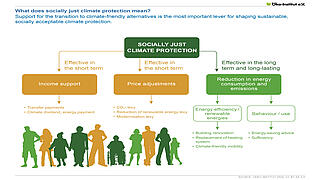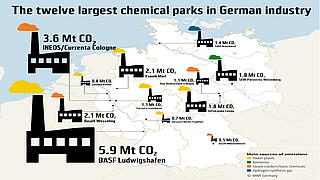Different, more sustainable mobility behaviour is a key component of the mobility transition. Only then will urban quality of life be improved, with reduced noise pollution and emissions. Integral elements of sustainable mobility concepts include the sharing and joint use of vehicles (carsharing and carpooling), and the expansion of the public transport, cycling and walking infrastructures and services. New mobility concepts such as the mobility budget and active mobility are gaining in importance, also in a corporate context.
How can a future vision of sustainable mobility become reality? In many of its research projects, the Oeko-Institut shows the way forward. Its researchers develop scenarios for low-carbon mobility for the local level and for national and international policy-making; they also identify the impacts of policy measures in the areas of local mobility, cycling, public transport and carsharing. To that end, they track greenhouse gas emissions trends and project how more efficient technologies will affect transport volumes, resource use and costs. And lastly, they propose amendments to road traffic legislation and to transport-related taxes and charges in the interests of climate change mitigation.













